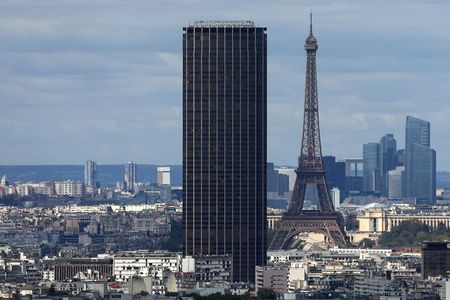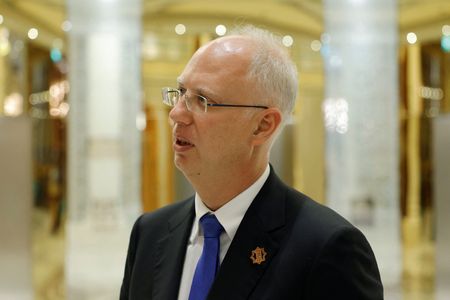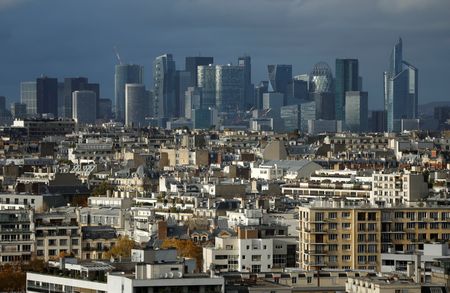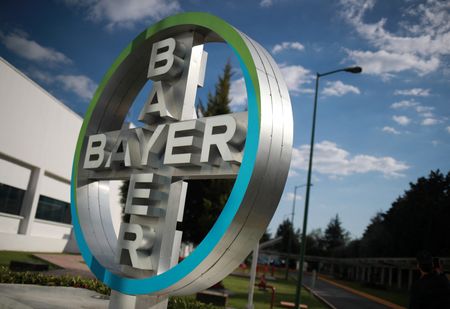By Jonathan Cable
LONDON (Reuters) -Euro zone business activity unexpectedly grew at a faster pace in October as companies received new orders at the quickest rate in 2-1/2 years, suggesting the bloc’s economy gained momentum at the start of the final quarter, a survey showed on Friday.
The HCOB Flash Eurozone Composite PMI, compiled by S&P Global, rose to 52.2 in October from 51.2 in September, marking the tenth consecutive month of expansion and reaching a 17-month high and confounding expectations in a Reuters poll for a dip to 51.0.
PMI readings above 50.0 indicate growth in activity.
“October’s flash PMIs suggest that the euro zone economy may have picked up a bit at the start of the fourth quarter,” said Adrian Prettejohn at Capital Economics.
“At the country level, there was a stark contrast between Germany and France.”
In France, activity declined faster than expected as demand for goods and services in the euro zone’s second-biggest economy weakened further amid a volatile political climate.
But in Germany, Europe’s largest economy, the private sector recorded its strongest growth in nearly 2-1/2 years, buoyed by a robust rise in services activity.
Germany’s strong and much higher-than-expected reading gave the euro a boost.
In Britain, outside the European Union, businesses could be at a turning point as the manufacturing sector showed signs of a recovery and inflation pressures receded, although caution is still weighing on firms ahead of next month’s government budget.
Services activity led the euro zone’s expansion, with its PMI climbing to 52.6 from 51.3 in September, reaching a 14-month high. The Reuters poll predicted 51.1.
Manufacturing output grew marginally faster at 51.1 compared with 50.9 last month, though the sector’s headline PMI sat at 50.0 having risen from 49.8 in September, better than the expected no change from last month.
Employment returned to growth in October following September’s slight decline, with the services sector creating jobs at the fastest rate since June 2024. Manufacturing firms, however, cut staff at the quickest pace in four months as they adjusted to weaker demand conditions.
The increase in overall operating costs slowed slightly but firms did lift their own prices a little faster.
“Inflation in the euro zone services sector remains moderate. The rate of inflation for sales prices has risen slightly, but remains close to the long-term average. The European Central Bank, which pays particular attention to inflation in the service sector, is likely to see this data as confirmation of its stance not to implement further interest rate cuts,” said Cyrus de la Rubia, chief economist at Hamburg Commercial Bank.
The ECB has finished cutting interest rates as inflation holds around its 2% target and the economy marches steadily on, according to a growing majority of economists in a Reuters poll published on Wednesday.
Despite the improved activity, business confidence dipped to a five-month low, suggesting firms remain cautious about future prospects.
(Reporting by Jonathan Cable; Editing by Toby Chopra and Hugh Lawson)










